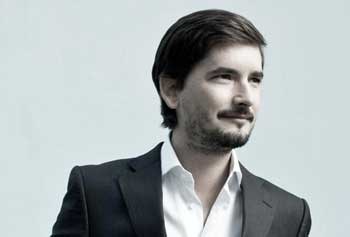
10/17/2013
Boston Globe
By Siddhartha Mitter
Seen from an American perspective, the renewal of Portuguese fado — a trend that has surged in the last 10 to 15 years — has brought a glamorous addition to world-music programming. Seductive stars such as Mariza and Ana Moura have enchanted concert and festival crowds with their update of Lisbon’s passionate, tormented music of the soul.
From the point of view of the Portuguese-American community, however, in its core territories of Eastern Massachusetts, Rhode Island, and Newark, the picture is a little different. On one hand, fado has a history here: Old-timers have fond memories of fado nights at local taverns in bygone days. On the other hand, the new Portuguese stars don’t often stop by. And when they do, they play large concert halls, not the small rooms where fado — at its roots, an acoustic and intimate genre — thrives.
Now, an insurance agent from Woburn and an engineering professor raised in Peabody, brought together by their love of fado, aim to bridge the gap. Feligenio Medeiros and David Mendonça are producing a two-week tour that will hit mainstream venues and ones that cater to the immigrant community in a half-dozen New England towns, plus workshops at Portuguese programs at area schools and universities.
The tour stars a modern fadista from Lisbon, Rodrigo Costa Félix, whose CD “Fados de Amor” won the Best Fado Album award this year from the Amália Rodrigues Foundation. Joining him are his accompanists, including his wife, Marta Pereira da Costa, on Portuguese guitar, and guest singers from the Portuguese-American fado community, including New Jersey’s Nathalie Pires and New Bedford’s Catarina Avelar.
It’s the first venture for Portuguese American Cultural Exchange, the nonprofit Mendonça and Medeiros have founded to strengthen ties between artists and audiences in Lisbon and here. They’ve found support from the Portuguese consulate, which connected them to the area’s Portuguese private schools and public schools that teach Portuguese, and from Chelmsford businessman Luis Pedroso, who recently helped endow a new Portuguese studies center at the University of Massachusetts Lowell.
Both Mendonça, 46, and Medeiros, 58, credit trips to Lisbon for stoking their fado obsession and their desire to build its US audience. In 2008-09, Mendonça, who teaches industrial engineering at Rensselaer Polytechnic Institute in Troy, N.Y., spent a sabbatical year in Lisbon haunting the fado houses of the Alfama neighborhood.
“In one year, I went to 150 fado nights,” Mendonça says. “I became connected to a lot of singers, lyricists, and composers. I got a broad exposure to the fado of Lisbon.”
Medeiros was born in the Azores and came to Cambridge as a child, and made his first visit to Lisbon only last year.
“It exceeded all my expectations,” Medeiros says. “I listened to fado every day, made friends in the restaurants, and stayed in touch.”
Medeiros remembered Portuguese cultural nights, often featuring fado, that used to take place in the 1970s at the Harrington School in East Cambridge. As a teenager he met the woman who became his wife at one of these events.
“Little by little it disappeared, there was a lack of interest,” he says. But with fado vibrant in Lisbon again, he wondered if anything similar was burgeoning in the Portuguese communities of Fall River, New Bedford, Hudson, Peabody, or Rhode Island.
“When I came back, I did a search for fado nights, and I started finding places,” Medeiros says. “I’d go to some of these places and found there were quite a few things happening.”
Medeiros started a website, www.fadonight.com, listing venues and events around the area, as well as on the West Coast and Canada. Meanwhile, Mendonça was building his own site, Fado Today (www.fado-today.blogspot.com), full of news and commentary on fado and album and concert reviews.
The two men made their connection this way, over the Internet. “We are the only two active English-language websites on fado,” Mendonça says.
For Costa Félix, 41, who has been singing fado for two decades, the tour offers the chance to share his music, which is traditionally based but features new compositions and lyrics, some his own. It also offers a reminder that even though the big international stars have been women, fado features male singers too.
“I sing in Clube do Fado,” Costa Félix says, referring to a famous Lisbon venue. “And often, tourists are amazed to see that a man sings fado. But male singers have always had a big influence on how fado developed!”
His wife, however, is a true rarity: a woman accompanist on guitar. “It’s very unique what she does,” Costa Félix says. “She’s a professional player all over the scene in Lisbon.” (She’s also a former civil engineer.)
Mendonça and Medeiros say they asked the couple to headline this tour because of the way they mix fado tradition and innovation, and also because they speak English fluently, so that the workshops are open to everyone. The educational component is essential, they say, both to explain fado to young Portuguese-Americans and to build interest in Portuguese culture among other Americans.
Between launching the organization and doing the legwork for the tour, including raising money, dealing with artist visas, booking venues, and other logistics, the two fans-turned-impresarios have had their work cut out for them.
“It’s a labor of love,” says Medeiros. “But there’s an expression, ‘the fado happens.’ I love the music, it gives me goosebumps. I’m enjoying the work.”
